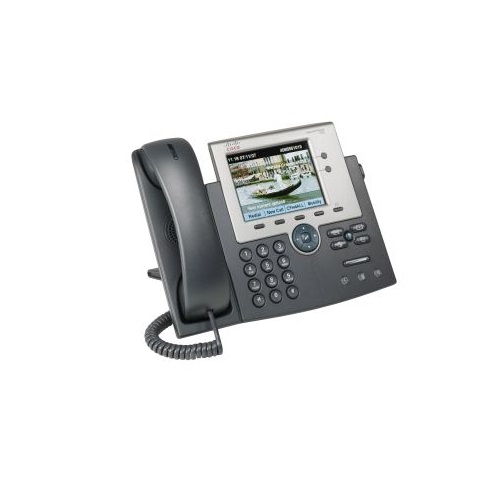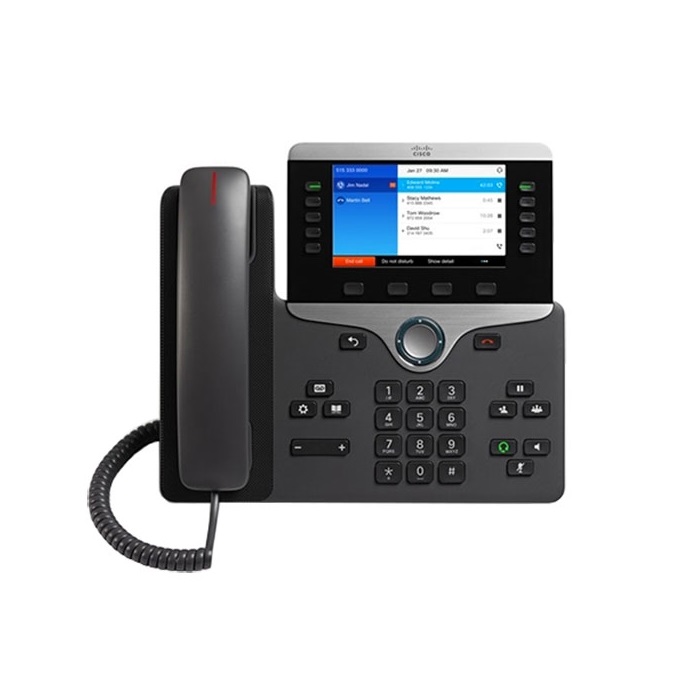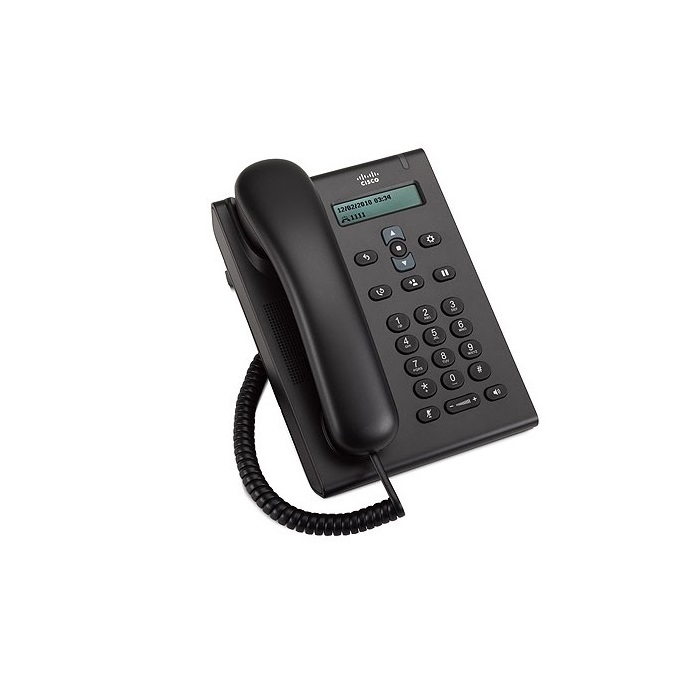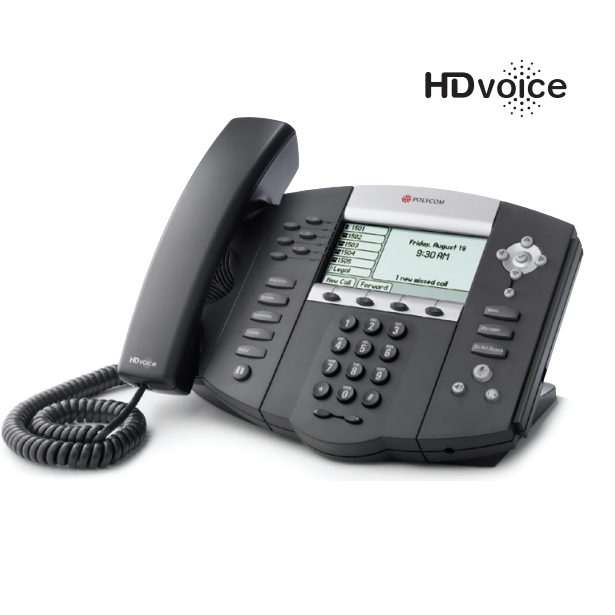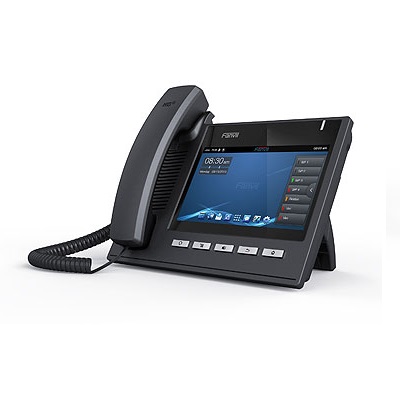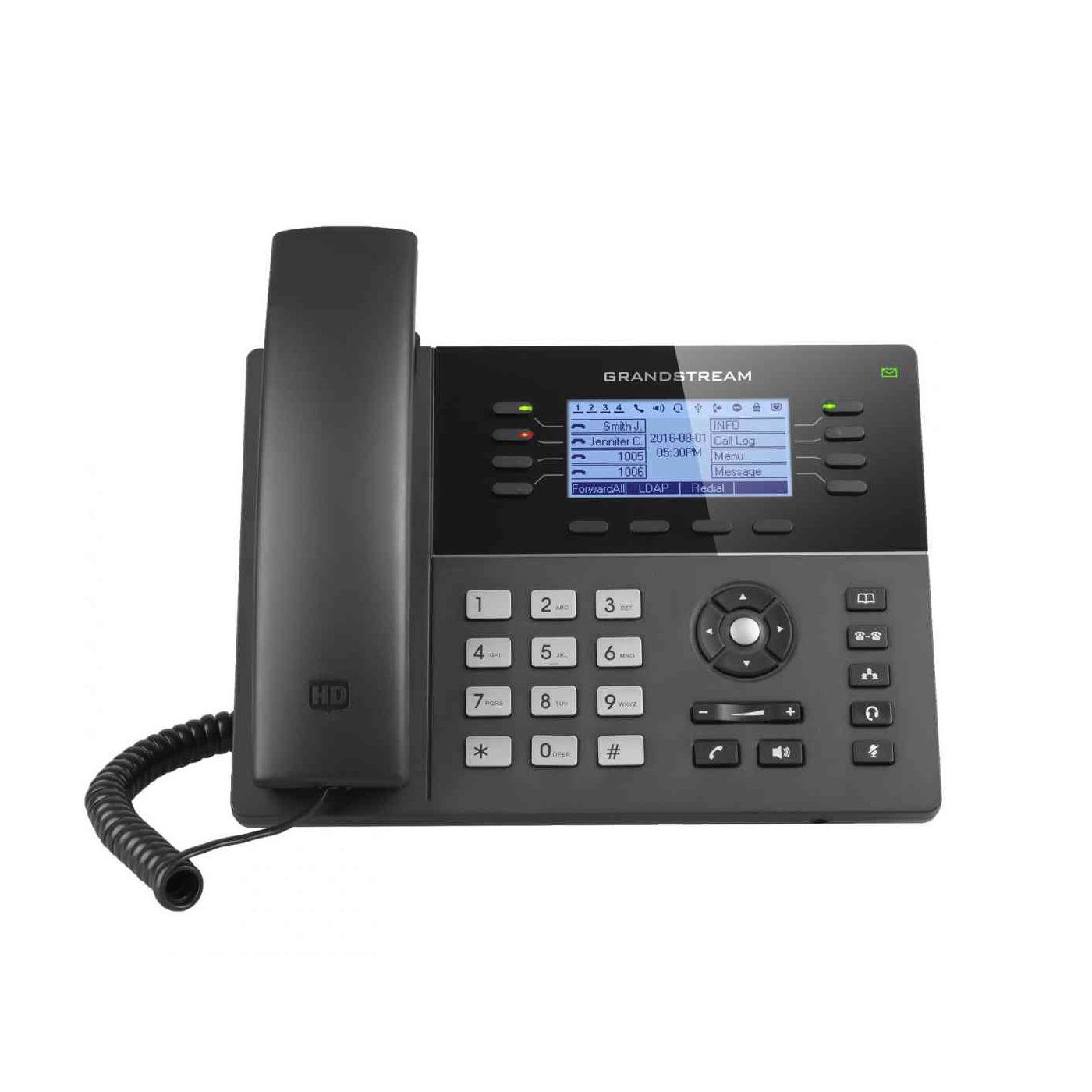|
Feature
|
Description/Benefit |
|
Display
|
- 5-inch (12.5 cm) graphical TFT color display, 16-bit color depth, 320 x 240 effective pixel resolution, with backlight. Allows for greater flexibility of features and applications, and significantly expands the information viewed when using features such as Services, Information, Messages, and Directory. Display also supports localization requiring double-byte Unicode encoding for fonts.
|
|
Wideband Audio
|
- Support for wideband (G.722 codec, adherence to TIA 920), including handset, headset, and speakerphone (see Q&A for details).
|
|
Codec Support
|
- G.711a, G.711µ, G.729a, G.729ab, G.722, and iLBC audio compression codecs are supported (see Q&A for details).
|
|
Speakerphone
|
- Full-duplex speakerphone with acoustic echo cancellation.
|
|
Messages Key
|
- Provides direct access to voicemail.
|
|
Directories Key
|
- Ready access to missed, received or placed calls (plus intercom history and directories). Incoming messages are identified and categorized on the display, allowing users to quickly and effectively return calls using direct dial-back capability. Corporate directory integrates with the Lightweight Directory Access Protocol Version 3 (LDAP3) standard directory.
|
|
Settings Key
|
- Allows user to adjust display brightness, select background images (if available), and select ringer sounds through the User Preference menu. Network Configuration preferences also can be set up (usually by the system administrator). Configuration can be set up either automatically or manually for Dynamic Host Control Protocol (DHCP), Trivial File Transfer Protocol (TFTP), Cisco Unified Communications Manager, and backup Cisco Unified Communications Manager instances. Other available Settings submenus include Device Configuration, Security Configuration, and Model Information.
|
|
Services Key
|
- Allows users to quickly access diverse information such as weather, stocks, quote of the day, or any Web-based information using XML.
|
|
Help Button
|
- Online Help gives users information about the phone keys, buttons, and features.
|
|
Speakerphone, Mute, and Headset Buttons
|
- Speakerphone includes Speaker On/Off, Microphone Mute, and Headset buttons that are lit when active. For added security, the audible dual tone multifrequency (DTMF) tones are masked when the speakerphone mode is used.
|
|
Navigation Cluster with `Select’ Button
|
- Four-way navigation cluster allows users to scroll vertically and horizontally. At the center of the cluster is a `Select’ button that can be used for selection of an in-focus item (for example, to open an underlying menu).
|
|
Display Button
|
- Indicates when phone is in power-saving sleep/inactivity mode (button is lit), and can be used to awaken the display. Inactivity period is configured by the system administrator.
|
|
Ethernet Switch
|
- Internal 2-port Cisco Ethernet switch allows for a direct connection to a 10/100/1000 BASE-T Ethernet network through an RJ-45 interface with single LAN connectivity for both the phone and a colocated PC. System administrator can designate separate VLANs (802.1Q) for the PC and phone, providing improved security and reliability of voice and data traffic.
|
|
Headset Port
|
- Dedicated headset port eliminates the need for a separate headset amplifier and allows the handset to remain in its cradle, making headset use simpler. Both wideband (G.722) and narrowband headsets are supported.
|
|
Volume Control
|
- Provides easy decibel-level adjustments for the speakerphone, handset, headset, and ringer. The handset is hearing aid-compatible. Additional volume control gain can be achieved using an inline handset amplifier.
|
|
Adjustable Foot-Stand
|
- Stand is adjustable from flat to 60 degrees to provide optimum display viewing and comfortable use of all buttons and keys. The foot-stand is keyed to match standard wall-jack configurations for wall mounting. Optional wall-mount brackets are also offered.
|
|
Multiple Ring Tones
|
- More than 24 defined user-selectable ring tones are available. Ring tones may also be personalizes through use of the Cisco Unified Phone Application Suite.
|
|
Americans with Disabilities Act (ADA) Features
|
- Handset is hearing aid-compatible and meets Federal Communications Commission (FCC) loudness requirements for the Americans with Disabilities Act (ADA). Section 508 loudness requirements can be achieved using industry-standard inline handset amplifiers such as Walker Equipment W-10 or CE-100 amplifiers. Dial pad is also ADA-compliant.
|
|
Quality of Service (QoS) Options
|
- Supports differentiated services code point (DSCP) and 802.1Q/p standards.
|
|
Security
|
- Positive device identity through X.509v3 Certificates, digitally signed images, cryptographically secure provisioning, and secure signaling and secure media with AES-128. Cryptography is not enabled by default and may only be enabled through a cryptographically enabled CUCM. The phone also contains an 802.1X supplicant and supports EAPOL pass-through.
|
|
Language Support
|
- Built-in support for more than 30 languages (dependent on Cisco Unified Communications Manager version).
|
|
Configuration Options
|
- IP address assignment can be statically configured or configured through the DHCP client.
|







